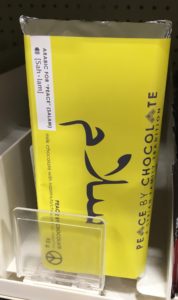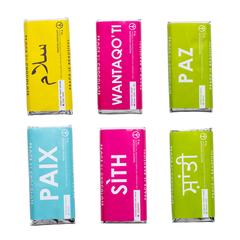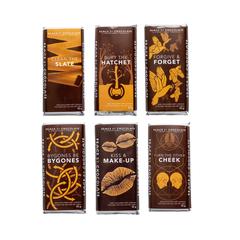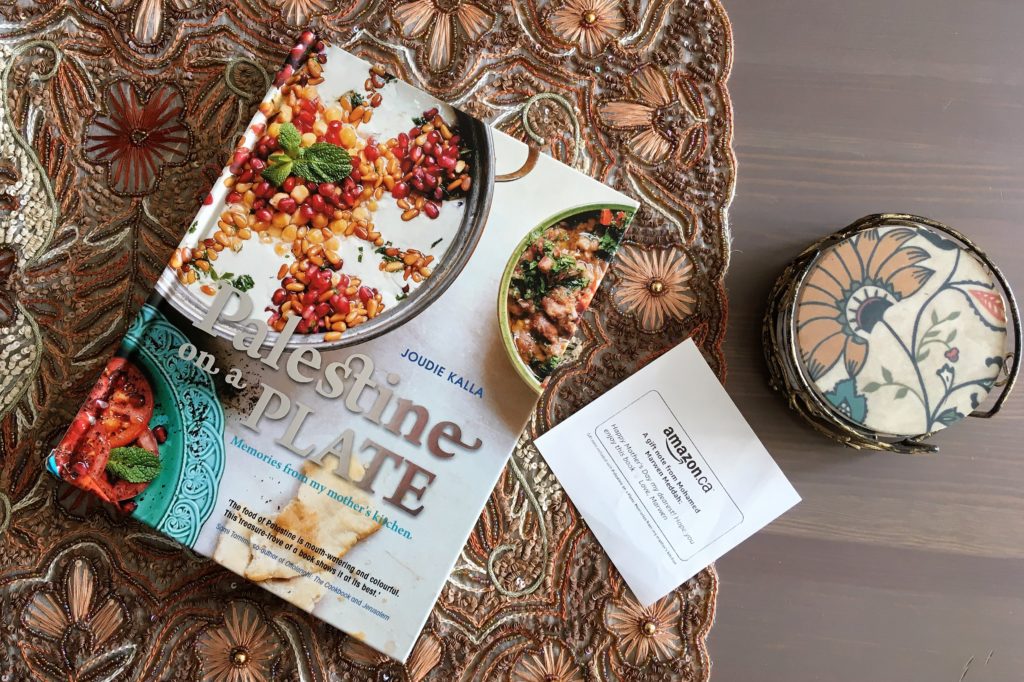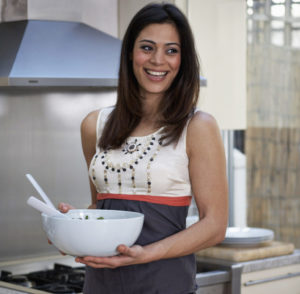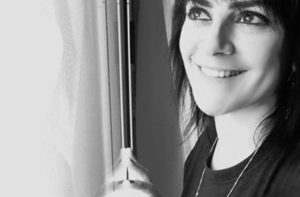UPDATE: I’d like to report that the Highland Park Library Board of Trustees decided to reinstate the reading of the children’s book P is for Palestine. Press release:.
Thanks and all the respect to the Highland Park Library for doing the right thing, and for embracing freedom of speech. Everyone deserves a voice.
A beautifully written and adorably illustrated children’s book is stirring “controversy” in New Jersey, as the pro-Israel Jewish community there call for it to be banned from the Highland Park Library shelves, causing the library to cave in and postpone the book’s public reading pending a board meeting, open to the public, to be held on June 5th, 2019.
A bestseller and the first of its kind to exist, ‘P Is for Palestine‘, by the lovely Golbarg Bashi, has become the center of attention of many critics, who blasted it as …(drum roll)… anti-Semitic. (Surprise, surprise!).
Why, you may ask? Well, for starters it’s considered to be the first ever English-language ABC story book about 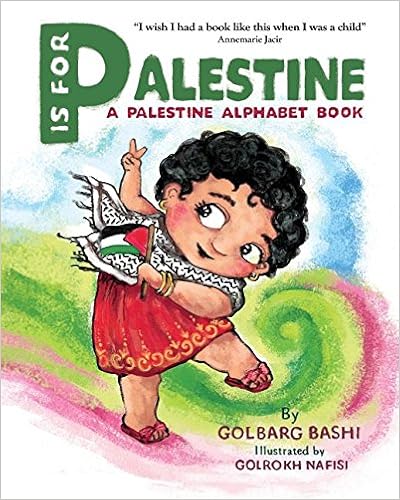 Palestine, its culture and historical sites that actually made it to the shelves of public libraries in the US and many other English-speaking countries. That of course goes against Zionists’ efforts in wiping this people and their culture off the face of this planet.
Palestine, its culture and historical sites that actually made it to the shelves of public libraries in the US and many other English-speaking countries. That of course goes against Zionists’ efforts in wiping this people and their culture off the face of this planet.
Also, critics argue that the book promotes hate and provokes violence, mainly because of the mention of the word “Intifada”, in “(I) stands for Intifada”, a word I have realized that many well-educated people in the West don’t understand, or misinterpret as a call for war or “Jihad”, thus accusing the writer of provoking anti-Semitic sentiments.
For the sake of clarifying, Intifada is an Arabic noun that’s derived from the verb nafada, which literally means to shake off something. It was used to describe the many attempts in which Palestinian people tried to shake off occupation, i.e. resist, as in when they were kicked out of their generations-old houses, they tried to get these houses back; when they were thrown in prison for no crime they committed but be the rightful owners of the land, they tried to reclaim their freedom, when their relatives and friends were massacred, they tried to protest and protect the rest.
So for a child born in occupied Palestine, life is a constant display of Intifada, due to the constant oppression they endure, making it an essential part of their culture that cannot be left out just so the feelings of the occupiers wont be hurt!
In a video discussing the reaction to this book, a Rabbi argues that Intifada is a sensitive subject for Israelis, because it brings up very harsh memories of them being targeted and killed by Palestinians, when it was actually the other way around, entirely.
Intifada is a living symbol of the ongoing suffering of Palestinians who were minding their own business, living in peace as Muslims, Christians and Jews, to wake up one day to a brutal occupation massacring them, kicking them out of their homes and throwing them out of their land, denying them the right to return, and suffocating any spark of hope in leading an average normal life for those who stayed behind. So if you don’t want any mention of Intifada, don’t create it, it’s as simple as that: cause and effect.
But let’s pretend I know nothing about the reality of the conflict, let’s say I’m a media-brainwashed US citizen, would I buy your claims that this word should not be mentioned because it evokes memories of hardships and suffering of your people? What about the word “HOLOCAUST”?
I’m sure we all agree, even us Palestinians, that it’s a stain in the history of humanity, an absolutely horrible inhumane thing Jews had to endure and live through, but I don’t see you sabotaging its occurrence anywhere, in fact, you’re embracing it and wasting no opportunity to bring it up in fiction and non-fiction, stressing its importance as part of your history that should not go unnoticed… Why aren’t Palestinians allowed to mention Intifada then?
In that same video by the way, you can see that the bookstore selling “P is for Palestine”: Book Culture, was threatened, we’re talking death threats to owner and staff, pushing them to clear the book off their shelves and boycott it… And that is, ladies and gentlemen, bullying at its best!
The Jewish Voice for Peace (JVP) issued a statement commenting on the cancellation of the book reading saying that: “Our event, meant to promote tolerance, was canceled due to intolerance and the promulgation of proven falsehoods about Palestinians.” Very true. Full statement available here.
Critics claim the book introduces youngsters to violence, teaching them to hate and… wait for it… “it’s used to teach little children about how great the Palestinians are, and we should murder the Jews… that’s the bottom line” and I’m quoting Rabbi Bernhard Rosenberg here (video available below), yes a Rabbi, a man of religion who should be calling for peace, promoting coexistence and tolerance, but no, he said it loud and clear: It bothers him _and those who share his views_ that the book acknowledges the existence of the Palestinian people, their rich culture, their history, their never-ending attempts at leading normal lives despite the constant crimes the oppressive Israeli occupation commits against them.
There’s not a word of hate in this book, not one invitation to bloodshed or killing, it teaches pride in a culture that’s struggling to survive, it teaches empathy with people who are forgotten and who Zionists claim don’t even exist. It’s a cultural children’s book celebrating Palestine and its people, period. Don’t call it anything but what it really is.
[Video source: abc7NY]
Authors, bookstores and libraries that support freedom of speech and give a voice to everyone regardless of personal views are civil, open-minded, tolerant and professional; these people and entities should be celebrated, supported and empowered, not attacked, threatened and bullied… Live and let live!
Every bookstore has something this reader will object to and that reader will see unfit. If bookstores in countries that support freedom speech cave in to the demands of every community, our bookstores will literally be empty of books. If I don’t want my children exposed to a certain book, and there are so many I tell you, then I’d simply not allow it in my house, I wont go to its public readings and definitely won’t buy it. If I was very offended, I might blog about it, or discuss it with my community so they can be warned and not have their children read it, but I will not go bullying owners and public libraries into not allowing it on their shelves, this is just ridiculous and seriously childish!
I will end this blog posting with a question that I hope you, readers, would take some time to contemplate: If this author, who is not Palestinian by the way, and who is not living in Palestine, and if these bookstores and libraries, who are also not Palestinian nor in Palestine, are getting death threats and being pressured, attacked and bullied over a children’s book, how do you think a Palestinian, living in Palestine, under Israeli occupation, is being treated for speaking their mind and trying to lead a normal life?
Please support the book and its author by:
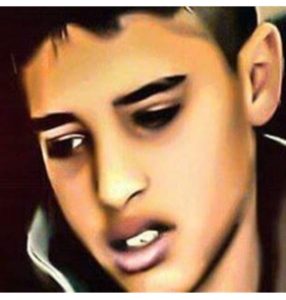 In 2015 Ahmad Manasra, a Palestinian 13 year old was run over by Israeli patrol,
In 2015 Ahmad Manasra, a Palestinian 13 year old was run over by Israeli patrol,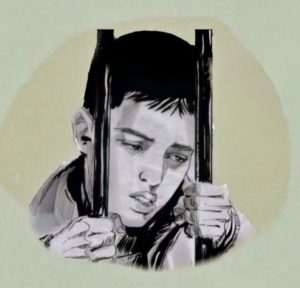 I am here, my love
I am here, my love